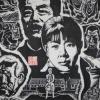Weird Stuff (tinfoil hat wearing goons only, please)
-
It's not like it's not slowly happening here anyway, except here it's semi-voluntary. Now that's uneducated. The difference is here the government are beginning to introduce measures to protect the public from it's own stupidity."Plus he wore shorts like a total cunt" - Bob
-
Minnesänger wrote:dynamiteReady wrote:You can't have a surveillance state of the likes that China is purported to have, if a large proportion of a 1billion+ populous is educated to the level you've just suggested.
Why not?
Any state can pretty much do anything they like as long as they are perceived by the majority of the population to be improving the lives of people like them. The educated aren't really and better at resisting facism/totalitarianism than anyone else ate they?
-
Minnesänger wrote:
Why not?You can't have a surveillance state of the likes that China is purported to have, if a large proportion of a 1billion+ populous is educated to the level you've just suggested.
Well, take Falun Gong for example (a cliched example, but an example nonetheless).
Or indeed, any of the persecuted minority groups in China...
These conditions can only arise because of the tight control the government exerts over the exchange of ideas in China.
Any country found to apply that level of control over freedom of information really can't be seen as a 'champion' of science, because it is, in an almost classical sense, suppressing a key tenet of scientific inquiry (challenging observations and findings), much like how the Catholic church fucked with Galileo in his time.
Ok, so you can argue that the Chinese are definitely making a concerted effort to master technology in it's current forms. And I suppose the regime is currently open enough to permit a great deal of interesting research to take place (in fact, according to rumour, morally ambiguous genetic research will always have a home in China).
But, if the government controls the ends and means of all research, then yes, we can all be awed by some of the stuff that the Chinese are committed to, but it's ultimately limited to a degree, and possibly flawed, because all discoveries, once ratified, can never be challenged.
And in exercising that form of control, it's only natural that there will be an incredibly large imbalance between what some people know, and what some people don't.
That's an opinion mind you... Please be gentle."I didn't get it. BUUUUUUUUUUUT, you fucking do your thing." - Roujin
Ninty Code: SW-7904-0771-0996 -
GooberTheHat wrote:The educated aren't really and better at resisting facism/totalitarianism than anyone else ate they?
I'd argue that you'd have to be aware enough about something, to be pissed of about it...
Education would possibly temper your response though... Complicated question.
There's probably a body of research for that..."I didn't get it. BUUUUUUUUUUUT, you fucking do your thing." - Roujin
Ninty Code: SW-7904-0771-0996 -
Show networks
- https://www.facebook.com/patrick.horgan.7186
- superflyninja
- Xbox
- SuperflyninjaX
- Steam
- superflyninjax
Send messageI broadly agree with Muzzy on his points.
I don't think anyone in here blindly believes that David Ike is 100% correct, paedo lizards walk among us.
Regarding conspiracies however, I think they are easier to keep hidden than people might think. I wont go into much detail but we (wife n me) have first-hand experience of just how easy it is to keep things secret/low key and how willfully ignorant people in general are.http://horganphoto.com My STILL under construction website
PSN : superflyninja -
I think you'll find that we're all actually well aware about what you're talking about...Come with g if you want to live...
-
Show networks
- https://www.facebook.com/patrick.horgan.7186
- superflyninja
- Xbox
- SuperflyninjaX
- Steam
- superflyninjax
Send messageShit you guys are onto me.......
https://youtu.be/O2GZoMBgJRwhttp://horganphoto.com My STILL under construction website
PSN : superflyninja -
I have a feeling this is gonna be a biggie - I apologise in advance.dynamiteReady wrote:
Well, take Falun Gong for example (a cliched example, but an example nonetheless). Or indeed, any of the persecuted minority groups in China... These conditions can only arise because of the tight control the government exerts over the exchange of ideas in China. Any country found to apply that level of control over freedom of information really can't be seen as a 'champion' of science, because it is, in an almost classical sense, suppressing a key tenet of scientific inquiry (challenging observations and findings), much like how the Catholic church fucked with Galileo in his time. Ok, so you can argue that the Chinese are definitely making a concerted effort to master technology in it's current forms. And I suppose the regime is currently open enough to permit a great deal of interesting research to take place (in fact, according to rumour, morally ambiguous genetic research will always have a home in China). But, if the government controls the ends and means of all research, then yes, we can all be awed by some of the stuff that the Chinese are committed to, but it's ultimately limited to a degree, and possibly flawed, because all discoveries, once ratified, can never be challenged. And in exercising that form of control, it's only natural that there will be an incredibly large imbalance between what some people know, and what some people don't.
Why not?You can't have a surveillance state of the likes that China is purported to have, if a large proportion of a 1billion+ populous is educated to the level you've just suggested.
I get where you're coming from re. exchange of ideas and basic scientific principles, and the contradiction that occurs when you claim to be a progressive scientific society and also an ideological dictatorship. It's worth nothing though that the examples of suppressed groups in China aren't ones that are looking to spread scientific ideas, but ones that are looking to spread philosophical and cultural ideas - often ones that contradict the views of the Party and Confucianism. It works with Galileo and the Church because the power at that time was a theistic one, not a scientific one. Chinese society has been based around explicit values and power structures for thousands of years, now, and these ideas are so deeply rooted that it's hard to imagine them ever being completely removed.
In order to understand Chinese social order, and why the Party today has been so successful in maintaining power (and actually increasing it, in a modern technologically advanced and globalised world) we need to take a slightly deeper look at their history (i'll try to be brief). The Chinese Imperial Dynasties ran from about 2000 BCE (!!!!!) up until the early 20th century - specifically 1911/12, when the Qing Dynasty finally ended. So, you have nearly 4000 years of Imperial rule. During that period, houses came and went, and there were periods with no clear ruling power, but generally speaking during this time the Emperor was a God-like power that ruled above all others with the blessing of heaven. During large swathes of this history (arguably up until the later part of the Ming dynasty) China was one of the most technologically advanced countries in the world. The obvious inventions are well known, such as gunpowder and the compass, but we're also talking things like working irrigation systems.
However, where the church was used by many western nations as a way to keep the uneducated masses in order, China had no such thing. There was Buddhism, of course, as well as quite a bit of Catholicism at some points, but they both had problems in China. You see, one of the big problems with religions is that they claim to represent an ultimate authority above all others, but how can that work when the Emperor is the ultimate authority? The catholic church was actually allowed in to China freely, at first, and told that they could send missionaries and proselytise, under the condition that they did not lay claim to a power above the emperor. You can guess whether the Catholic church kept up their end of the bargain. This was a period when China was trying to open up more, but it ended with them all but completely closing their borders and shutting themselves off from the world. So, given the lack of success of some religious systems, how did Chinese society hold itself together, and how did the ruling classes maintain power?
That's where Confucianism comes in.
Confucianism gets a fluffy, spiritual reputation in the west where it's seen as wise and mystical, which is bullshit. But it also gets blamed for just about everything wrong with societies such as Chinese, Korean and Japanese society, which is also kinda bullshit. There's your standard Confucianism, and then there's various forms of Neo-Confucianism based on how the teachings were used later, but for simplicity's sake we'll just call it all Confucianism for now. There's a lot of general teachings in Confucianism which get taught in Chinese schools, most of which are shallow (仁 = love for other people, oh my god so deep!) but the real kickers, and the ones that kinda get glossed over, are the following ideas:
1. Society needs structure and order. (A prince should employ his minister according to according to the rules of propriety; ministers should serve their prince with faithfulness. / He who exercises government by means of his virtue may be compared to the north polar star, which keeps its place and all the stars turn towards it.
2. Education and hard-work are key to self-improvement. (The expectations of life depend upon diligence; the mechanic that would perfect his work must first sharpen his tools.)
3. A person's duty is not to themselves, but to their family. And the family to the nation. (The strength of a nation derives from the integrity of the home.)
4. To engage with views that contradict what is "right" is in itself a mistake (To see and listen to the wicked is already the beginning of wickedness.)
Now, arguably, some of these were no doubt intended to be used positively (as in, example 4) but in Chinese society it is actually used coercively in order to dissuade anyone from thinking outside of the "right" way. Key to all these are the ideas of Filial Piety. Filial Piety is the ultimate distillation of Chinese social order, and it is often references when talking about Chinese family, but it actually has applications for the whole of Chinese society. Filial Piety is the foundation of social order in China, and it is an explicit set of guidelines who who should be deferent to whom.
It follows as such:
The subject is below the ruler
The son is below the father
The younger brother is below the older brother
The wife is below the husband
The young are below the old
This is key as it places moral "rightness" or the scientific / provable correctness of an idea BELOW the social order. In Neo-Confucianist thought, once of the most unfilial acts a child can do, is to not deliver a grandson to his or her parents. This is Chinese collectivism in action and it's why Chinese parents often try to convince their children to study hard through appeals to emotion (or emotional blackmail, in a good number of cases) by reminding children of their place, obligations and loyalties, rather than try to convince them with logic or morality. Again, from a western perspective, this can and often does seem incredibly cruel, but in a society like China the child is necessary to ensure the future survival of the entire family - the parents need the child to be success, as that child will be supporting the older generations once they reach the right age. This was exacerbated to an insane degree as a result of the one child policy. Filial Piety and Confucianist principles maintain this status quo and prevent social upsets. Seriously, Chinese kids have so much baggage around their parents it's unbelievable.
The first Emperor, Qing Shi Huang, tried to destroy Confucianism after coming to power, burning both the texts and the scholars that taught it. But his rule ended quickly, and the following houses quickly realised that Confucian teachings offered a great method of establishing social control and order.
To study and to learn, to advance science and to contribute to the development of your country is to strengthen your nation and to improve your family's chances of flourishing. In this we see that, in Chinese culture, progressive educational policies and strong social order are not mutually exclusive - they are co-dependant. To be questioning of the family and the ruler would be tantamount to rejecting education, mortality and your place in society. Philosophical and moral freedoms certainly suffer, but China progressed scientifically incredibly well during this period.
Until it didn't.
If Confucianist policy surrounding social order was one of the things that helped China flourish, it was also the downfall of China. China became convinced of its own exceptionalism, and Confucian ideals went from the scaffolding of the social building, to the bricks, sofa and carpets. New ideas were completely rejected, because everything China has was already better than everything else. China became arrogant, inward-looking, and convinced of its own perfection. All civil servants were required to take tests on Confucian principles, and modern, progressive teachings gave way to historical ones. This coincided with an increase in intervention from foreign countries, and China's long decline began. It had spent so long tugging itself off to old instagram pics of how it used to look that, before it could do anything, Europe has surpassed it technologically, philosophically and economically. Things stayed like that for quite some time.
As China declined, social unrest grew, and the Imperial dynasties finally ended. The KMT (which we now know as the main party in Taiwan) rose to power and China was now a republic. The KMT formed a national assembly, and there were even some early elections, but the leaders of the KMT soon leant back into traditional, Chinese authoritarian tendencies. There was declarations of a new emperor, massive infighting, split factions, military juntas...it was a mess. There were also struggles to gain recognition, as well as temporary alliances with the Soviet Union, who were also simultaneously looking to work with and form a new Communist power in China. The point is, authoritarian rulers were deposed by supposed revolutionaries, who turned out to be equally authoritarian.
The problem, it seemed, was that the Chinese people would never be truly free until they threw off their cultural shackles. This brings us to The New Culture Movement and the Communist Party.
The New Culture movement was born out of the failure of the Chinese Republic in 1912. A group of scholars set out a manifesto of sorts, proposing a new set of rules that Chinese people should follow in order to throw off the baggage and shackles of several thousands of years of accumulated history. I'll just quote the wiki here, since it gets the basics right:
The key points are basically this - the abandonment of hyper-formal traditional writing in order to make texts accessible to everyone, not just the rich and educated. Improved women's rights through the rejection of Confucian values, as well as a critical look at Confucianist texts, rather than just absorbing them and following them. To import elements of democracy and egalitarianism from other countries and, finally, the foundation of a forward-looking society that understands that China is not the centre of the universe, and that it needs to adapt to the future, rather than just relying on the past.1.Vernacular literature
2. An end to the patriarchal family in favor of individual freedom and women's liberation
3. The view that China is a nation among nations, not a uniquely Confucian culture
4. The re-examination of Confucian texts and ancient classics using modern textual and critical methods, known as the Doubting Antiquity School
5. Democratic and egalitarian values
6. An orientation to the future rather than the past
This was followed by one of the coolest periods in world literature. Two of the people in my avatar are writers from this era, who followed the principles of the New Culture movement. This movement was very left-wing, and was tied into the rise of socialism, but they were not (primarily) communist, and they were also not fully paid-up democrats in the western mould (this often gets forgotten by westerners when they discuss this movement as resulting events - such as Tiananmen Square - because to them it's purely a question of democracy VS the communist party, but it really isn't that simple). Many of these texts took aim at the hypocrisy and immorality in the centre of Chinese society, and they also often did a lot of damage to the ruling KMT.
Because the New Culture Movement, and the associated League of Left-Wing Writers (yes, that was a real thing), were effectively at odds with the powers that be, they were co-opted by the Communist party. Numerous writers joined the CCP in order to fight the good fight, but many didn't - they associated with the new revolutionaries and worked with them, but refused to sign up. They had mutual goals, but not always exactly the same values.
After The War Against Japanese Aggression ended (known as WW2 everywhere else) the Chinese civil war came, and the CCP won. The KMT fled to Taiwan and were protected by western powers who were now worried about Communism in the east (even though those same western powers originally refused to acknowledge the KMT after the fall of the Emperor). Now the CCP are in power and the Chinese people are free. Feminism flourished. Everything was good. For a very short, short time.
Before long, the authoritarian tendencies returned and those at the top of the CCP did what the KMT and the imperial dynasties did before them. There was movement after movement from the leadership, whipping people into a frenzy about every new enemy of progress - there was the Anti-rightist movement, the Anti-leftist movement, the Confucius movement, and even movements aimed at getting people to criticise high-powered CCP cadres who stood against Mao, such as Deng Xiaoping. During this time, children were encouraged to report their parents for expressing anti-Party thoughts, which directly went against the idea of Filial Piety. Confucianism was dead, long live the party.
All of this bled into the cultural revolution, where many of the scholars and highly educated people who helped propagate socialist sentiment in China suddenly found themselves stripped of their titles, and forced into re-education. This included many writers who worked during the new culture movement, for the crime of continuing to write social satire - this time aimed at the CCP.
It ended, of course. Deng Xiaoping gained power after Mao's death and set about establishing the Reform and Opening Up policy (改革开放). And, from then, China grew into a world superpower. But, something strange (or not so strange) happened - Confucianism, once the enemy of the CCP, and obstruction in the way of progress, was suddenly tolerated, then encouraged and is even now enshrined in official Chinese law. This is insane. It didn't get much headway in the western press, but the idea of Filial Piety laws being proposed and sanctioned by the CCP is as close as you'll get to a Chinese government ever saying that they surrender in the cultural fight (and this happened quite recently). Nowadays, official Chinese propaganda spreads Confucian values - encouraging you to defer to your elders, to be good children, and to benefit the nation.
What was the point of this very long reply? I wanted to establish that Chinese scientific progress has often had little to do with how free or authoritarian the country is at the time. For China, as noted earlier, freedom and choice are philosophical questions, completely separate from education, science and social progress.
China's most successful periods economically and scientifically have had little to do with the freedom of the people, but more to do with what type of education has been emphasised, and how willing China was to trade and work with the outside world. The less successful times have been when rulers have made the country backwards looking and insular. It was then that China declined and fell behind. But China has always been authoritarian. And scientific progress has sped up and slowed during those times. So, it seems that, historically speaking, how free Chinese people are has little to do with long-term progress.
dynamiteReady wrote:That's an opinion mind you... Please be gentle.
I hope none of the above came off as rude or dismissive - I took what you wrote in good faith and tried to reply in kind. GooberTheHat wrote:
GooberTheHat wrote:
...Any state can pretty much do anything they like as long as they are perceived by the majority of the population to be improving the lives of people like them.
Why not?You can't have a surveillance state of the likes that China is purported to have, if a large proportion of a 1billion+ populous is educated to the level you've just suggested.
That's pretty much it. The unspoken agreement between the people and the party is that as long as people's lives get visibly and measurably better, everyone will look the other way. The Party knows best and the Chinese ruling classes (and parents / grandparents) have always been incredibly paternalistic - you just focus on you, and don't sweat the details. As long as China continues to grow, the mainlanders will continue to support the party.
While studying really hard. -
Paragraphs, man, paragraphs!
-
Kow wrote:Paragraphs, man, paragraphs!
It was all paragraphed properly but then I quoted Goober and it all got squished. I blame him.
It should be kinda fixed now, although I don't doubt a few things got mixed up. -
Wow, reading it back to myself that was really long, really dull and has little to do with the thread. FML.
-
Maybe BoJo as PM belongs in here too
-
I just read a chapter in Musashi called Filial Piety. Never knew it was such a big deal. Very informative post."Sometimes it's better to light a flamethrower than curse the darkness." ― Terry Pratchett
-
Show networks
- die
- @CustomCosy
- Xbox
- Skerret
- PSN
- Skerret
- Steam
- Skerret
- Wii
- get tae
Send messageMuch enjoyed, CintSkerret's posting is ok to trip balls to and read just to experience the ambience but don't expect any content.
"I'm jealous of sucking major dick!"~ Kernowgaz -
Minnesänger wrote:Wow, reading it back to myself that was really long, really dull and has little to do with the thread. FML.
Pfft!
Genuinely the most interesting thing I've read today.
That was amazing.
I'd been reading a little Lin Yutang recently, and while it's not the most extensive treatment of Chinese philosophy, he did cover the central ideas of Confucianism, and what can be seen as a seemingly innate order to civil life* (particularly in regards to ideas about age and authority).
Not read enough to know of it's place in modern China though, so yeah... That was an excellent read. :]
* Edit - Actually, not innate, but an empirical, rational, social order, that on paper, appears to be more holistic than Marxist socialism... It's only a part of Confucianism though, as he did apparently cover a lot of ground in his time..."I didn't get it. BUUUUUUUUUUUT, you fucking do your thing." - Roujin
Ninty Code: SW-7904-0771-0996 -
superflyninja wrote:Regarding conspiracies however, I think they are easier to keep hidden than people might think. I wont go into much detail but we (wife n me) have first-hand experience of just how easy it is to keep things secret/low key and how willfully ignorant people in general are.
People’s ignorance, wilful or otherwise, is also why it’s really easy to convince people that something is part of a conspiracy or cover up, in the absence of any such evidence. -
dynamiteReady wrote:
May need a little more detail to back up that statement. From what I've read, the opposite, to a degree, is true, and that makes sense... You can't have a surveillance state of the likes that China is purported to have, if a large proportion of a 1billion+ populous is educated to the level you've just suggested.It's mainly a Western thing thankfully, and the East are quietly and assuredly educating their populace in the scientific method.
Going back to this, here's a concession to your side of the argument...
https://www.forbes.com/sites/nickmorrison/2016/03/23/if-you-want-to-know-why-western-students-are-falling-behind-just-look-at-this-graph/#2169876d582a"I didn't get it. BUUUUUUUUUUUT, you fucking do your thing." - Roujin
Ninty Code: SW-7904-0771-0996 -
Just caught up with that post. Really interesting, thanks for taking the time to write it out, Cinty.
-
Show networks
- https://www.facebook.com/patrick.horgan.7186
- superflyninja
- Xbox
- SuperflyninjaX
- Steam
- superflyninjax
Send message
Hehehe thats all part of the fun isnt it?Andy wrote:
People’s ignorance, wilful or otherwise, is also why it’s really easy to convince people that something is part of a conspiracy or cover up, in the absence of any such evidence.superflyninja wrote:Regarding conspiracies however, I think they are easier to keep hidden than people might think. I wont go into much detail but we (wife n me) have first-hand experience of just how easy it is to keep things secret/low key and how willfully ignorant people in general are.http://horganphoto.com My STILL under construction website
PSN : superflyninja -
I enjoyed that Cinty, and learnt a fair bit."Plus he wore shorts like a total cunt" - Bob
-
Andy wrote:
People’s ignorance, wilful or otherwise, is also why it’s really easy to convince people that something is part of a conspiracy or cover up, in the absence of any such evidence.Regarding conspiracies however, I think they are easier to keep hidden than people might think. I wont go into much detail but we (wife n me) have first-hand experience of just how easy it is to keep things secret/low key and how willfully ignorant people in general are.
Most of the conspiracies we discuss on here are quite wild though, so it's easy to be dismissive (alien abductions, etc).
But one of the strangest conspiracy theories that has troubled me for years now, was the death of Dr David Kelly. Nothing supernatural about that one.
I still find it very hard to believe that he killed himself, given the evidence that's publicly available.
Am I an irrational loon?"I didn't get it. BUUUUUUUUUUUT, you fucking do your thing." - Roujin
Ninty Code: SW-7904-0771-0996 -
Kelly’s ‘suicide’ was pretty iffy, from memory. The cuts marks were on the outside of his wrists, rather than inside. (I think I’m right there, I haven’t read anything about it for years).
But then in Britain generally, we don’t resort to state-sanctioned murder simply because the threat of taking someone’s pension away or making sure their daughter doesn’t get into the Uni she wants or similar chicanery works well enough to make it unnecessary.
You’d imagine, were British secret services to hire people to murder someone, those people would do a more professional job than happened with Kelly. But who knows?
The MI6/NSA guy who ended up dead in a suitcase in his flat would seem a more likely candidate for state sponsored murder (not necessarily our state), although the true facts of that are largely unavailable to us.
Hilda Murrell too maybe (although that was probably a Mi5 initiated burglary gone wrong) and that Scottish guy who ended up dead in his car in the highlands in the 80’s (forget his name). Secret service murders are probably pretty rare in this country actually, outside of Northern Ireland anyway, where the security services ran amok for decades. -
LarryDavid wrote:The MI6/NSA guy who ended up dead in a suitcase in his flat would seem a more likely candidate for state sponsored murder (not necessarily our state), although the true facts of that are largely unavailable to us.
Omg yes... That was fucking weird."I didn't get it. BUUUUUUUUUUUT, you fucking do your thing." - Roujin
Ninty Code: SW-7904-0771-0996 -
dynamiteReady wrote:I still find it very hard to believe that he killed himself...
Really? -
Yes. Even an unsophisticated reading of the Wikipedia page would baffle anyone - https://en.wikipedia.org/wiki/David_Kelly_(weapons_expert)
In early August 2010, a group of nine experts, including former coroners and a professor of intensive-care medicine, wrote a letter to the newspaper The Times questioning Lord Hutton's verdict.[46][47][48] On 14 August 2010, Jennifer Dyson, a retired pathologist, amplified the criticism, saying that a coroner would probably have recorded an open verdict in the absence of absolute proof that suicide was intended. She cast further doubt on the circumstances surrounding the death of Kelly, and also criticised Hutton's handling of the inquiry. She joined other experts questioning the official finding that Kelly had bled to death and argued that it was more likely that he had suffered a heart attack due to the stress he had been placed under. This intervention came as Michael Howard, the former Conservative Party leader, became the most prominent politician to call for a full inquest into Kelly's death.
Always struck me as a weird case.
I'm no Sherlock Holmes, and I can't lay claim to an 'alternate scenario', but the circumstances surrounding his death seemed strange."I didn't get it. BUUUUUUUUUUUT, you fucking do your thing." - Roujin
Ninty Code: SW-7904-0771-0996 -
There are elements that cast doubt, certainly. There always are, particularly if you’re looking for them. There are certainly plenty of experts asking questions, although many are not equipped with the full facts.
However, it’s something of a stretch to say it’s hard to believe that a man who has been dragged through the coals, subjected to significant stress, thinking that his life as he has known it is over, would go out and commit suicide.
If Buddy Dwyer hadn’t killed himself on camera, there would still be questions about who pulled that trigger. -
I've always found the David Kelly thing unsettling because it's my name.Holding the wrong end of the stick since 2009.
-
Show networks
- @_badhairday_
- Xbox
- Bad Hair Day
- PSN
- Bad-Hair-Day
- Steam
- badhairday247
Send messageretroking1981: Fuck this place I'm off to the pub. -
Andy wrote:There are elements that cast doubt, certainly. There always are, particularly if you’re looking for them. There are certainly plenty of experts asking questions, although many are not equipped with the full facts. However, it’s something of a stretch to say it’s hard to believe that a man who has been dragged through the coals, subjected to significant stress, thinking that his life as he has known it is over, would go out and commit suicide. If Buddy Dwyer hadn’t killed himself on camera, there would still be questions about who pulled that trigger.
There was much discussion about the physical evidence found at the scene of his death. All stuff in the public domain, all of it quite unusual. Fingerprints, size of the knife, the nature of the cut/s, amount of blood lost... At least enough for a coroner to register an 'open' verdict experts say, but no official inquiry into his death was ever made, despite such serious doubts.
And after the clearly muddled physical evidence, with the love he exhibited for his family, and the strange position he (reluctantly) enjoyed as a hero to many people, it's really hard to believe that he would pick that time, and that method (a miscalculated dose of pain killers, and a blunt knife, without thought to kiss the daughter he clearly loved goodbye?) to end his life.
He was under enormous stress though. Can't deny that. And everyone is different.
davyK wrote:I've always found the David Kelly thing unsettling because it's my name.
EEEK!!! :S"I didn't get it. BUUUUUUUUUUUT, you fucking do your thing." - Roujin
Ninty Code: SW-7904-0771-0996
Howdy, Stranger!
It looks like you're new here. If you want to get involved, click one of these buttons!
Categories
- All Discussions2,715
- Games1,879
- Off topic836














